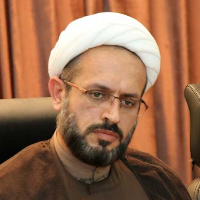Developing Process Model of Wisdom Based on Islamic Sources: Grounded Theory
The purpose of this research was to design a wisdom process model with an emphasis on narrative and Qur'anic teachings from Islamic sources. The method of this research was a qualitative type of Grounded Theory, and in order to check content validity, the descriptive contextualization method was used. With the formation of the semantic domain, the concepts corresponding to wisdom were identified in Islamic sources and analyzed in four stages of open, focused, central and selective coding. The result of this stage was the achievement of 1276 open codes, 344 focused codes, 84 central codes, 19 categories and 10 main micro components. These components are: knowledge, distinction, mental processing, control, strength in practice, perspicacity, acumen, insight, comprehend and sagacity. Then, the hypothetical relationships between these components and the process of achieving wisdom were investigated. The findings showed that the hypothetical relationships between these ten components are classified into two levels of "core categories" and "active domains". Based on this, wisdom in the core has the basic elements of "cognition", " control", "diagnosis", "processing", and " strength in practice ", which led to "perception of the best interest" in the intrapersonal domain and "insight", "perception of inner motivation and goals", "perception of concepts and objects", and "acuity" in the extra personal domain. The results were the design of a process model of wisdom, which was evaluated by 6 experts in Islamic sciences and psychology, and analyzed and evaluated using (CVI).
-
The Conceptual Model of Moral Personality Based on Islamic Sources
Mohammadreza Jahangirzadehqomi, , Mostafa Jahangiri *
Revelatory ethics, Spring 2025 -
Standardization of the Religious Attribution in Iranian-Islamic culture
, Ahad Omidi, Mostafa Jahangiri*, Mojtaba Hafez
Ravanshenasi Va Din, -
Developing a Theoretical Model of Sex Education Based on Islamic Thought
Navid Khakbazan *, Ali Aboitorabi, Hamid Rafi&Amp, Lsquo, I Honar
Journal of Islam and Psychological Research, Winter and Spring 2025 -
Conceptualization styles of attributing pleasant and unpleasant events in the Quran
*, Mohammadsadiq Shojaei
journal of Cultural Psychology,



